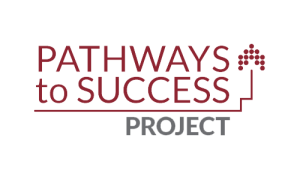Nature & Wildlife
Red-Eared Slider


Leveraging the theoretical framework of identity-based motivation theory, Pathways-to-Success is an intervention designed by Dr. Daphna Oyserman to help all students connect what they are doing in school right now to the person they expect to become one day. Through 12 brief sessions implemented during the first six weeks of the school year, students discover that now is the time to act, that school is the path to their future self, and that difficulty does not necessarilly imply impossibility.
I work alongside a team of skilled researchers to accomplish three main tasks. First, to scale-up the intervention. Second, to increase the sustainability of the intervention. Third, to test the impacts of the intervention using sophisticated research methods.

People prefer to act and make sense of their experiences in identity-congruent ways. Furthermore, action, meaning-making, and identity are recursively and dynamically linked. I am currently preparing my dissertation, a set of three studies spanning a variety of methodoligies and samples, to document the recursive process in which people's interpretations of difficulty shape their actions and are shaped by features of the situation. Together, these studies take an ecologically-valid approach to understanding how identities affect what people experience and how they use their time.

People use concretizing metaphors to make sense of abstract concepts, including social class. The metaphors people use frame their perceptions of themselves and others. Examples of social class metaphors common in American discourse include the social ladder, social mobility, and economic growth.
I am currently conducting experimental and qualitative work evaluating these social class metaphors. Importantly, each of these metaphors carries different implications regarding evaluations of character and dispositional vs. situational inferences. This work connects many literatures, including conceptual metaphor theory, essentialism, moralization of effort, and social class stereotypes. This work has both theoretical and applied implications, especially for public policy and politics.

The science is clear: climate change is real and caused by humans. Most Americans agree. While people can take pro-environmental actions such as changing personal habits or advocating for policy change, they typically do not. This inconsistency between belief and action increases threat and reduces chances of mitigating climate change. I believe we can draw insights from identity-based motivation to make progress in climate mitigation. I am currently piloting a field study in which people's interpretations of difficulty are leveraged to encourage real-world individual pro-environmental behaviors. If the results are promising, we plan to next explore how a similar method could be used to encourage real-world policy action.
Nature & Wildlife
Red-Eared Slider
Cooking & Baking
Tang Yuan for Lunar New Year
Kayaking
Santa Barbara, CA

Caffeine
Searching for the Perfect Matcha Latte

Cooking & Baking
Hand-Folded Dumplings

Nature & Wildlife
Western Fence Lizard
